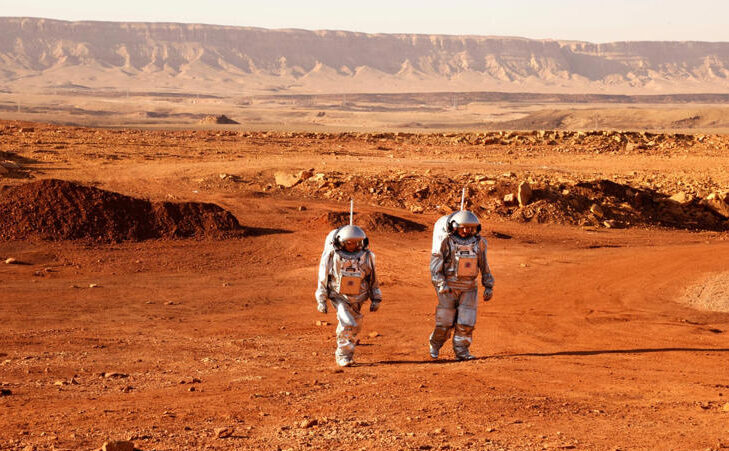Researchers from George Mason University reveal groundbreaking findings on the minimum number of astronauts required to build and maintain a Mars colony, challenging previous estimates.
Examining Martian Colony Viability
In a paradigm-shifting study, a team of scientists, including those from George Mason University in the US, have meticulously assessed the fundamental requirements for establishing and sustaining a human colony on Mars. Contrary to previous projections which pegged the necessary astronaut count between 100 and 500 individuals, this new research sheds light on a significantly leaner workforce.
Reevaluating Conventional Wisdom
Drawing on an in-depth analysis of preexisting studies, the research team synthesized data from varied disciplines to develop an insightful framework. By integrating insights from fields as diverse as behavioral psychology and human interactions, the study presents a more holistic perspective on the task at hand.
The Power of a Unified Colony
Employing an innovative approach, researchers considered social dynamics and psychological factors that contribute to the cohesion and resilience of a Mars-based community. Leveraging Agent-Based Modeling (ABM), a sophisticated simulation technique, scientists evaluated how different psychological profiles interact in demanding environments. This model enabled a comprehensive understanding of potential challenges and dynamics within the colony.
The Ideal Crew Size
After exhaustive simulations and rigorous analyses, the findings revealed a startlingly compact number: a mere 22 individuals could constitute the foundational population required for the establishment and perpetuation of a viable Mars colony over an extended period. This revelation underscores the significance of strategic selection and training of personnel for the anticipated challenges and isolation of interplanetary life.
Personality Traits and Survival
The research also emphasized the crucial role of psychological traits in the success of the Mars colony. Individuals characterized as “agreeable” exhibited a higher likelihood of survival, presumably due to their enhanced empathy and cooperative tendencies. In contrast, those identified as “neurotic” faced a notably higher mortality rate, highlighting the intricacies of human behavior in extreme conditions.
Paving the Way for Future Colonization
While the complexities of establishing a sustainable human settlement on Mars remain formidable, this study marks a pivotal step forward in demystifying the intricate dynamics of interplanetary habitation. As space agencies continue their exploratory endeavors, the significance of this research cannot be overstated, guiding future efforts towards a realistic and successful Martian colonization.









